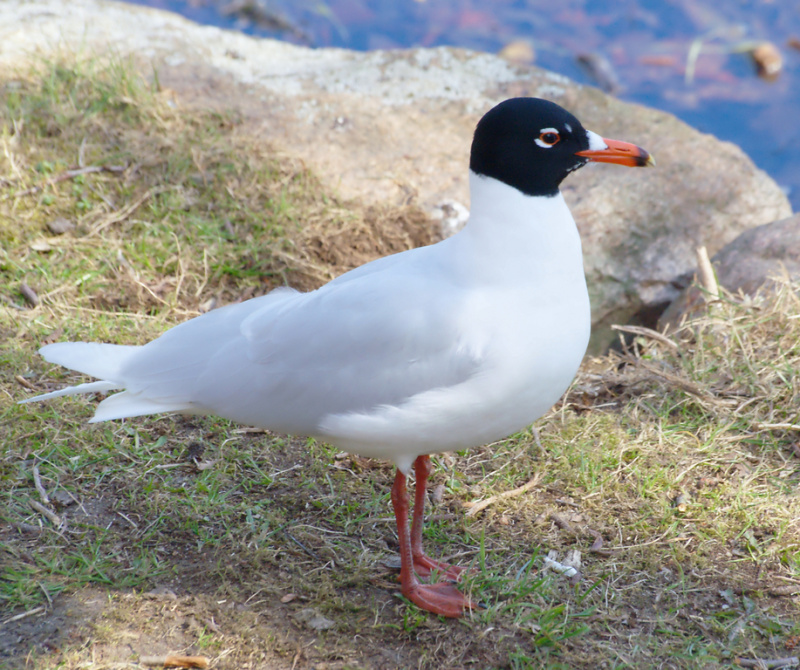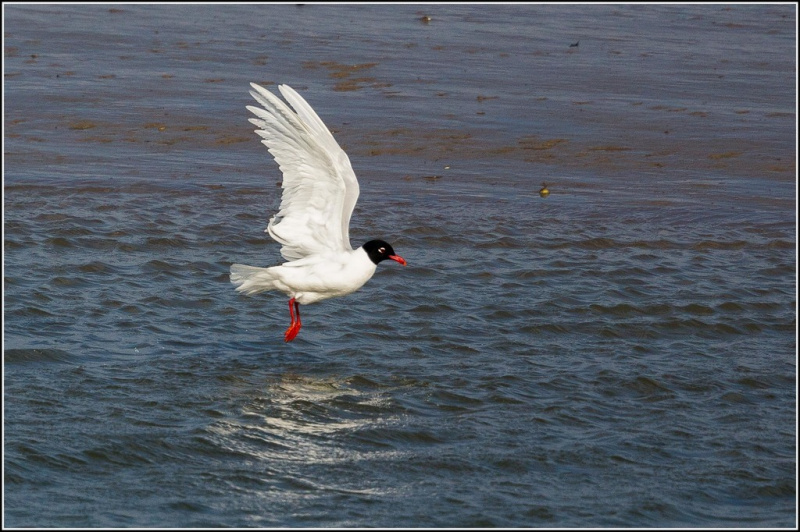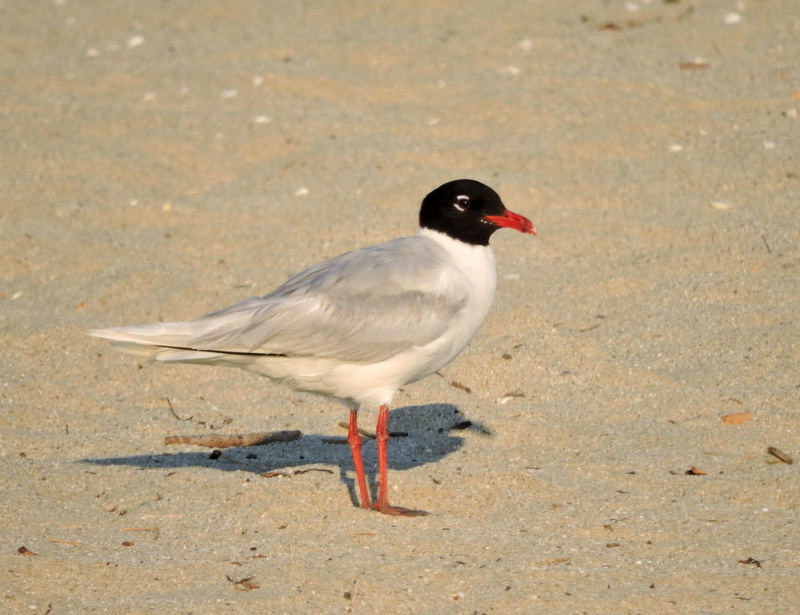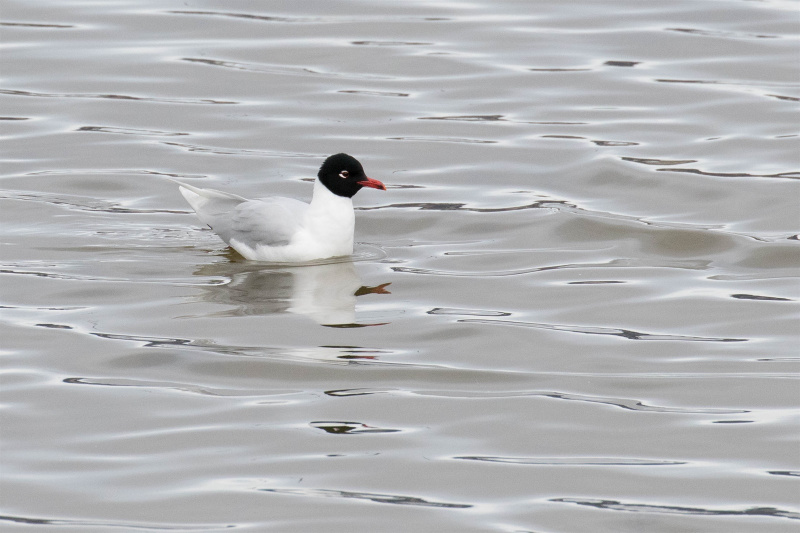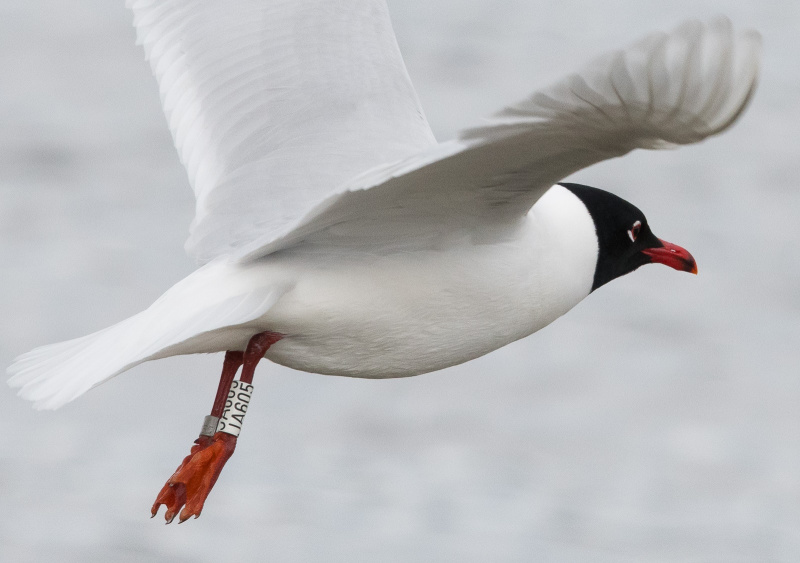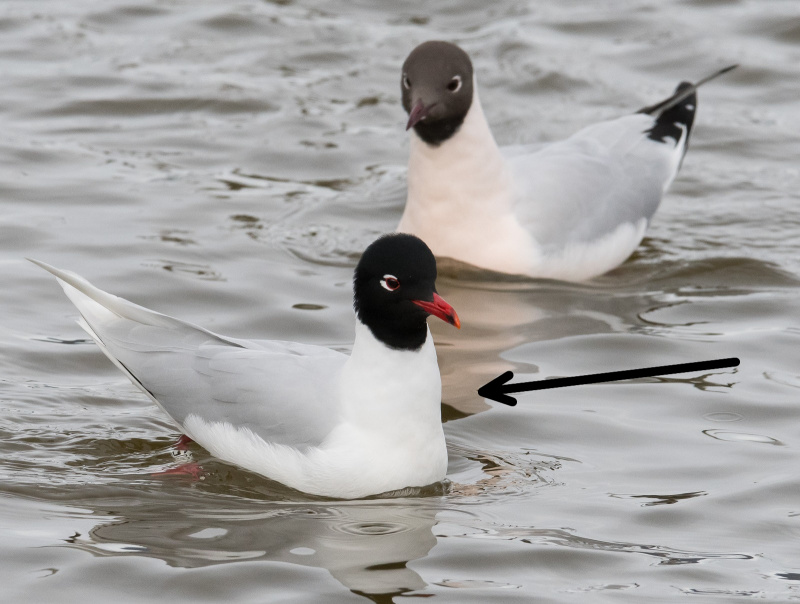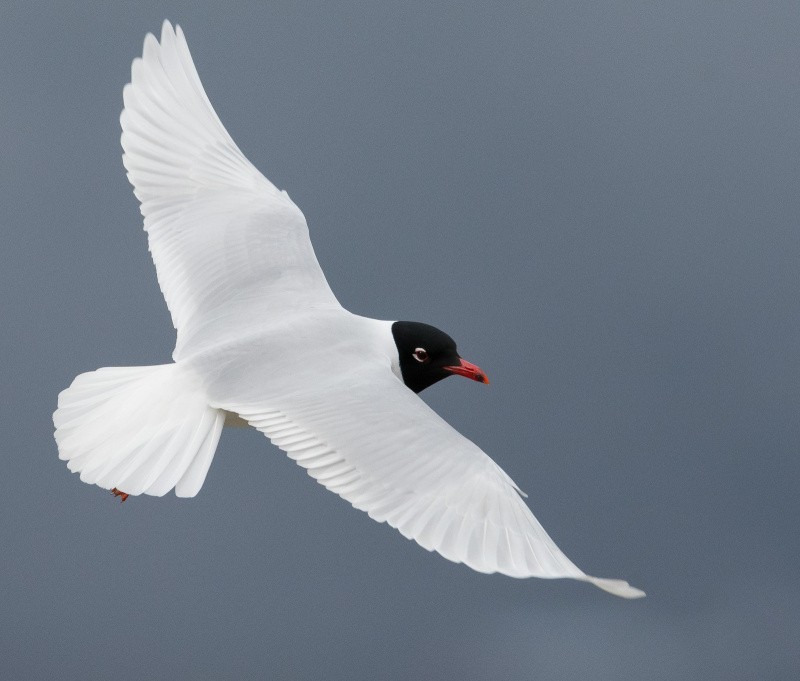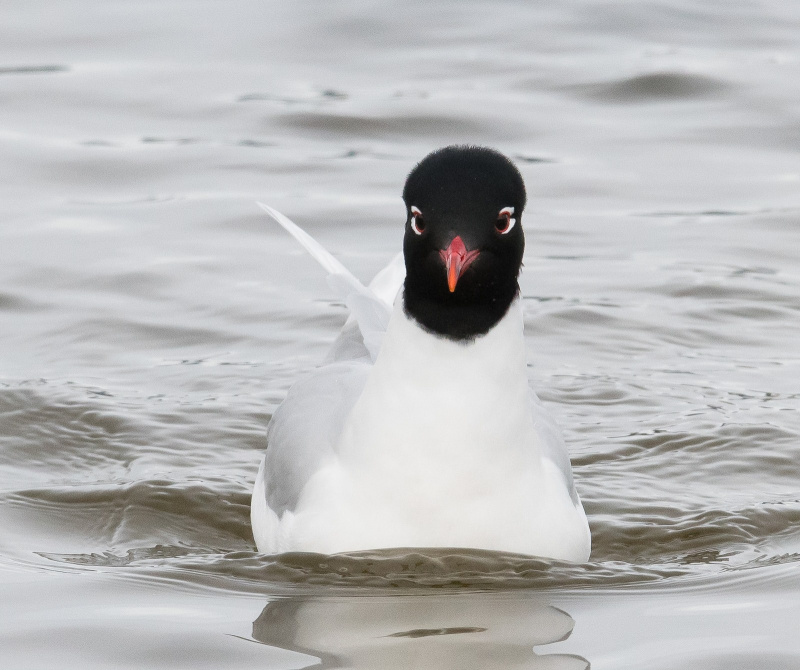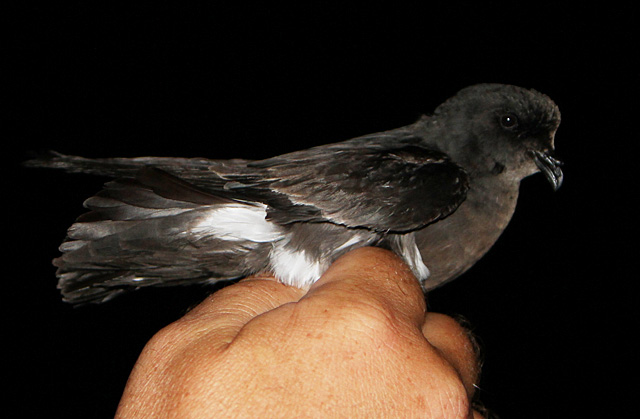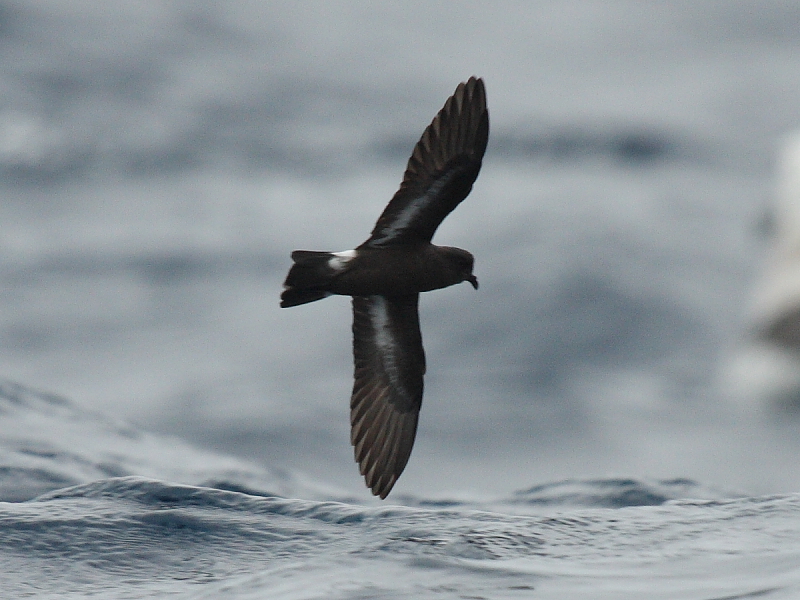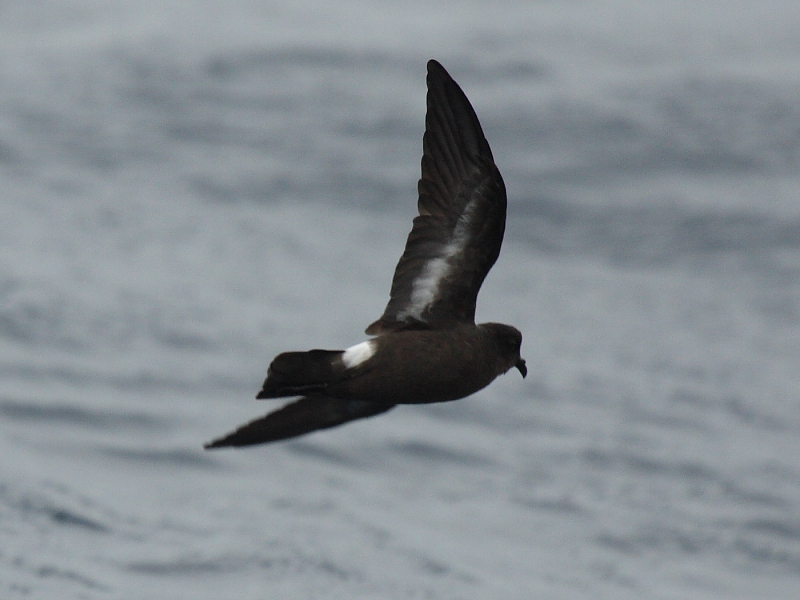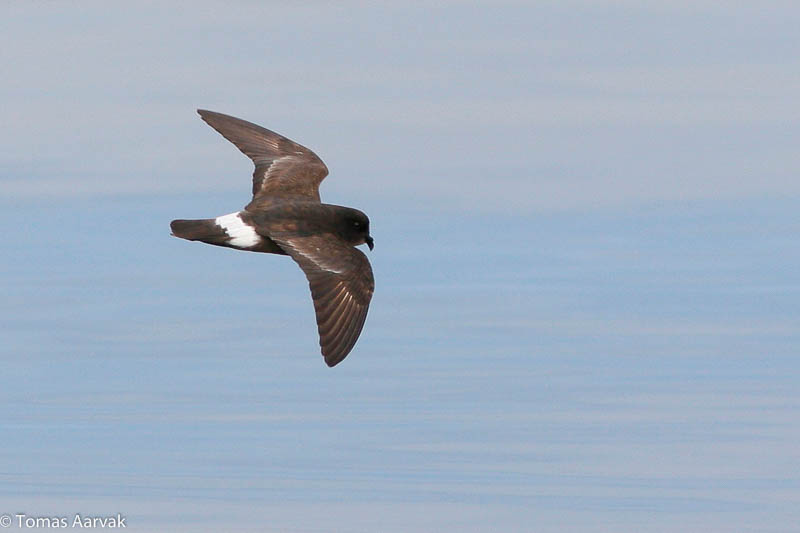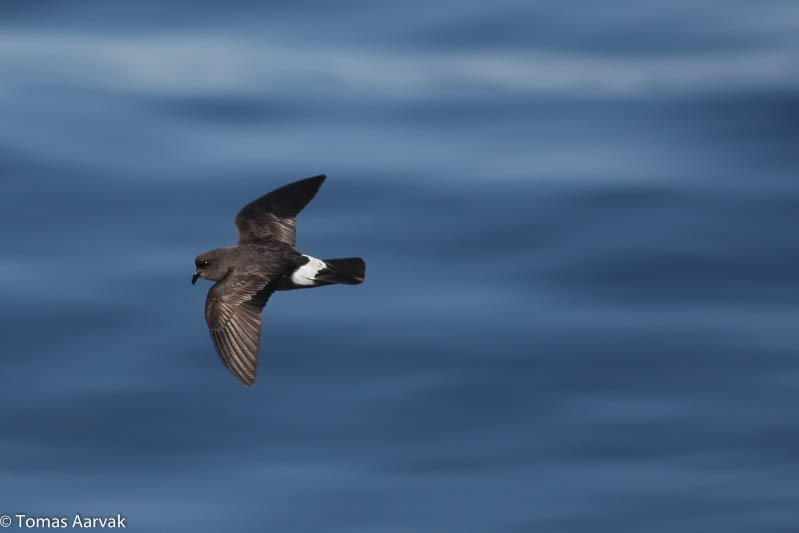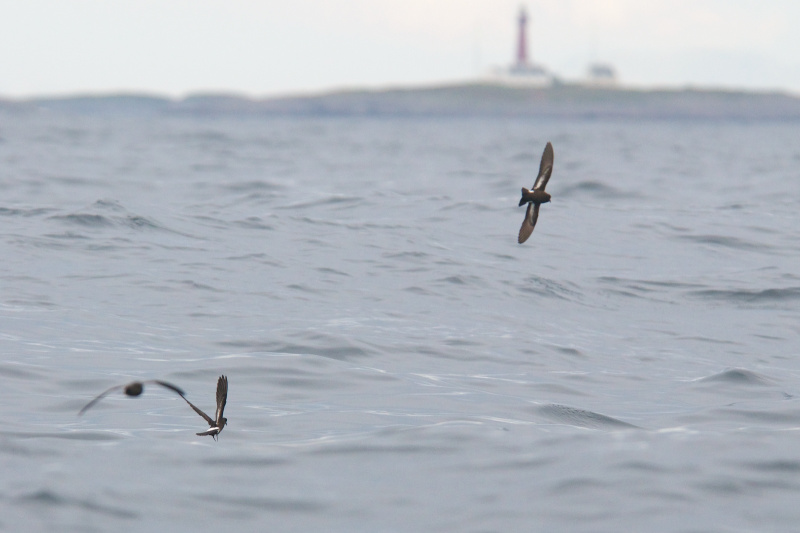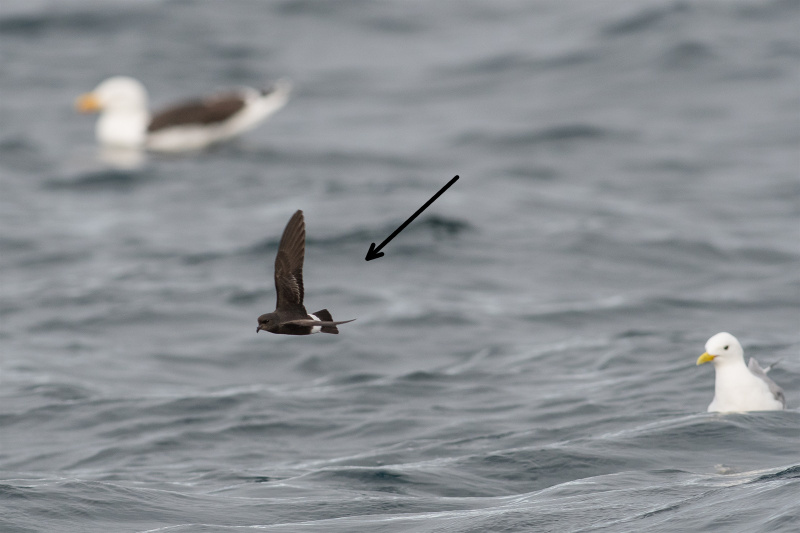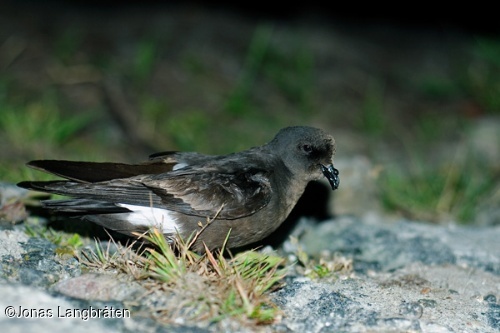Mediterranean Gull (Ichthyaetus melanocephalus)
Storm Petrel (Hydrobates pelagicus)
Small, but bulky gull. Black hood with white crescents above and below eye, blood-red bill and legs in breeding plumage. The rest of the body seems all white at a distance. Wingtips pure white in adult birds. Chest deeper than in Black-headed gull, and wings fairly broad and rounded. In winter the black hood is largely lost, but dark streaking around, and at the back of the eye remains. Juveniles can be confused with juvenile Mew Gull (Common Gull), but note white under wing-coverts, pale grey band (greater coverts) across secondaries, black or reddish bill and more narrow terminal band of tail. Paler belly than Mew/Common Gull. Second year birds are similar to adult winter, but varying degrees of black markings remains on wing-tips.
Sound:Distinct calls which can be identified even in mixed flocks. Most common call a short, mewing "yeah". Pitch rises and fall rapidly, with a "surprised" intonation. Timbre is nasal but clear and pure. Alarm call a series of short "ke-ke-ke", with similar timbre.
Contact call:
Distribution:
Wikipedia: map (se also Xeno-canto below)
Ecology:Birdlife ecology
Links:
Observation.org Latest observations
Image search Flickr NB! May give other species
CCCreative Commons,www.xeno-canto.org,Patrik Åberg,http://creativecommons.org/licenses/by-nc-sa/4.0/
Rarely seen, small petrel. Compact with shorter wings and tail, and blacker plumage than Leach's Storm-Petrel. Squared, unforked tail. White patch on upper tail coverts that reaches down on each side, with more square-cut edges than in Leach's. Also lacks the grey upper wing-band of latter, but shows white stripe on underside of wing. Flight-pattern bat-like with quick fluttering wing-beats and less powerful, and only short, gliding sequences. Sometimes patters with feet on the surface or rests on water. Visits breeding ground at night.
Sound:Heard at breeding ground. Dry, cyclic, rattling and cooing, interrupted by deeper nasal moaning or a higher pitched "kee-ee-kee", with emphasis on second syllable.
Song:
Distribution:
Wikipedia: map (se also Xeno-canto below)
Ecology:Birdlife ecology
Links:
Observation.org Latest observations
Image search Flickr NB! May give other species
CC
 English
English Albanian
Albanian
 Armenian
Armenian
 Bulgarian
Bulgarian
 Catalan
Catalan
 Croatian
Croatian
 Czech
Czech
 Danish
Danish
 Dutch
Dutch
 Finnish
Finnish
 French
French
 Georgian
Georgian
 German
German
 Greek
Greek
 Hungarian
Hungarian
 Italian
Italian
 Latvian
Latvian
 Lithuanian
Lithuanian
 Macedonian
Macedonian
 Norwegian
Norwegian
 Polish
Polish
 Portuguese
Portuguese
 Romanian
Romanian
 Russian
Russian
 Sami : Lule sami
Sami : Lule sami
 Sami : North sami
Sami : North sami
 Sami : South sami
Sami : South sami
 Scientific names
Scientific names
 Serbian
Serbian
 Spanish
Spanish
 Swedish
Swedish
 Ukrainian
Ukrainian


